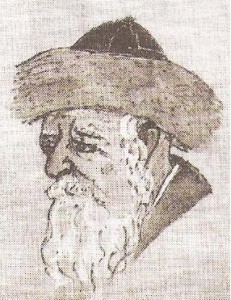A Gentle Prescription
Monday, August 26th, 2013Reb Zalman sends his Hattarat Nedarim / The Release of Vows. It is based upon the traditional formula usually recited erev Rosh Hashanah. This gentle prescription prepares us for the prayers and liturgy of the Yamim Noraim / The Days of Awe. Read it over to see how it resonates for you; then find three people to serve as your judges to read it some time close to Rosh Hashanah. LeShanah Tovah u-Metukah / for a good and sweet year. From Gabbai Seth Fishman
“My friends: I ask the three of you to serve as judges in a court empowered to release one from vows. Will you please serve for me in this capacity?”
The judges: “Yes, we are prepared to hear you.”
“What follows is not intended to void promises I made to other people from which only they can release me.
“From time to time in this past year, I made vows, sometimes having spoken them out loud, or having made a resolution, or sometimes just having had the intention to change something in my actions, or to change something in my behavior, or an attitude in my mind. Some were in relation to myself, to my body, to my mind, or to my soul. Some dealt with the way in which I was to conduct myself in relation to others. Most of all, there were those that dealt with my relation to God.
“At times, I undertook a practice or a custom, doing it three or more times, but having since willingly or unwillingly abandoned it and, I know that this, too, has had the power of a vow.
“When I have asked in my prayers for people, whether prayers for healing, for blessing or for the repose of souls departed, in which the formula included, ‘Because I shall contribute to tzedakah‘, I may have forgotten to do it or may not have been aware I said it. I ask you to release me from these as well.
“All these I regret and, I ask you to recognize my regret and to release me from all these vows.”
The judges: “Hearing your regret, we release you. All is forgiven, all is released. And may it be that just as we, here below, have released you from these vows and obligations, so too may it be that you may be released from the same by the court above.“
“As I stand here, aware of my fickle nature in matters of vows, promises and resolutions, I hereby declare that for the coming year, should I again offer such vows, promises and resolutions, may they have no effect and not become binding on me. At this moment, I regret any of these and wish that they not be valid.”
The judges: “We have heard your declaration and consider it licit and legal.
“May you be blessed with a good year, inscribed in the book of life and sealed for good.“

